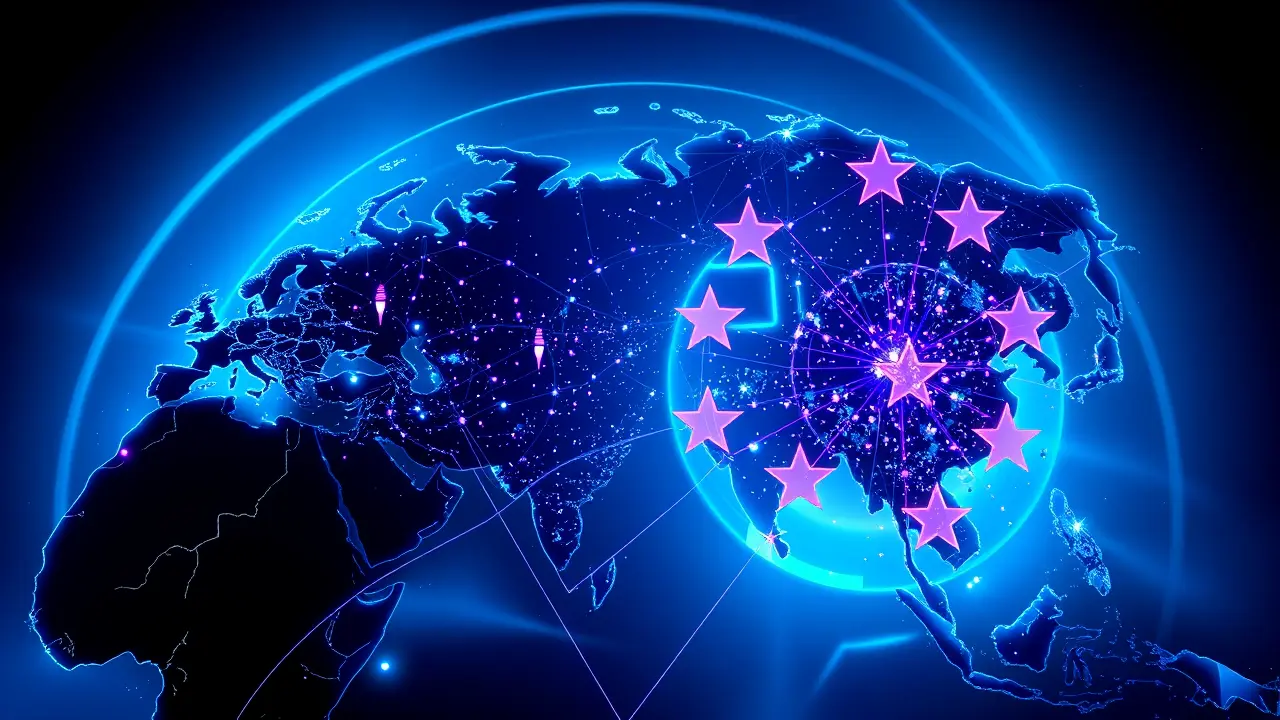
Politicssanctions & tradeTrade Tariffs
EU Welcomes China's Pause on Rare Earth Export Controls
RO
Robert Hayes
2 days ago7 min read
The European Union has formally welcomed China’s suspension of expanded rare earth restrictions, a development emerging from US-China talks in South Korea, which Brussels has characterized as an 'appropriate and responsible step' toward ensuring global stability. This diplomatic maneuver, however, unfolds against a backdrop of unresolved tension, as crisis talks in Brussels on Friday yielded little immediate relief for European corporations still grappling with the foundational export controls imposed last month.Rare earth elements, comprising seventeen critical minerals like neodymium and dysprosium, are the linchpins of modern technology, powering everything from electric vehicles and wind turbines to advanced defense systems, and China's dominance of this supply chain—controlling nearly 90% of global refining capacity—grants it a geopolitical lever reminiscent of historical resource monopolies. The original controls, justified under the guise of national security and environmental management, sent shockwaves through European industrial sectors, compelling a frantic reassessment of supply chain vulnerabilities and evoking parallels to the 2010 embargo that saw prices skyrocket and manufacturing lines stall.The current pause, a tactical concession likely brokered to de-escalate trade frictions with the United States, offers a temporary reprieve but underscores a persistent strategic dilemma for the EU: how to reconcile its green transition ambitions, which are profoundly dependent on these materials, with the hard reality of external supply dependence. This scenario echoes the resource diplomacy of the 20th century, where control over oil reserves dictated global power dynamics; today, rare earths are the new oil, and China’s calibrated actions demonstrate a masterful use of economic statecraft.European Commission officials, while publicly applauding the de-escalation, are privately accelerating the implementation of the Critical Raw Materials Act, a landmark initiative designed to bolster domestic recycling, foster strategic partnerships with alternative suppliers in Australia and Canada, and diversify sourcing away from geopolitical hotspots. Analysts from the German Institute for International and Security Affairs caution that this episode is merely a single move in a protracted great-power competition, where technological supremacy is the ultimate prize.The inherent fragility of the globalized supply chain was laid bare, prompting calls for a Churchillian-level of strategic stockpiling and industrial resilience, lest Europe find itself held hostage to the whims of a single supplier during a future crisis. The long-term consequences are profound; failure to secure a stable, diversified supply of these indispensable elements could not only hamstring the European Green Deal but also cede significant strategic autonomy to Beijing, reshaping the balance of power in the nascent age of the green economy for decades to come.
#featured
#EU
#China
#rare earths
#export controls
#trade talks
#US-China deal
Stay Informed. Act Smarter.
Get weekly highlights, major headlines, and expert insights — then put your knowledge to work in our live prediction markets.
Comments
It’s quiet here...Start the conversation by leaving the first comment.
© 2025 Outpoll Service LTD. All rights reserved.